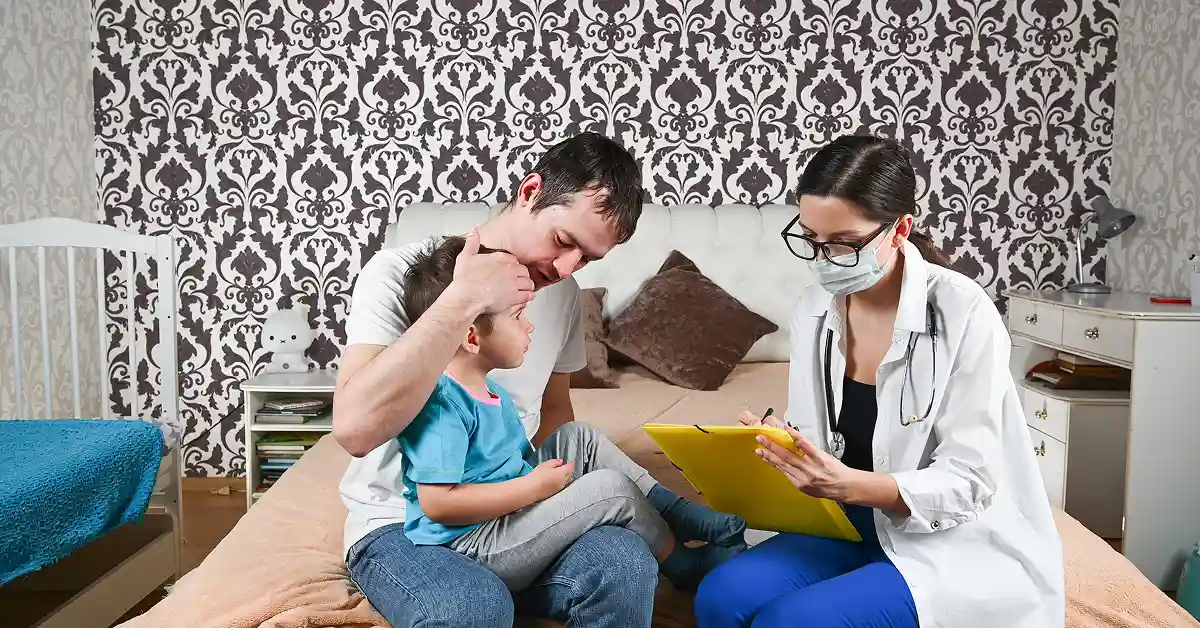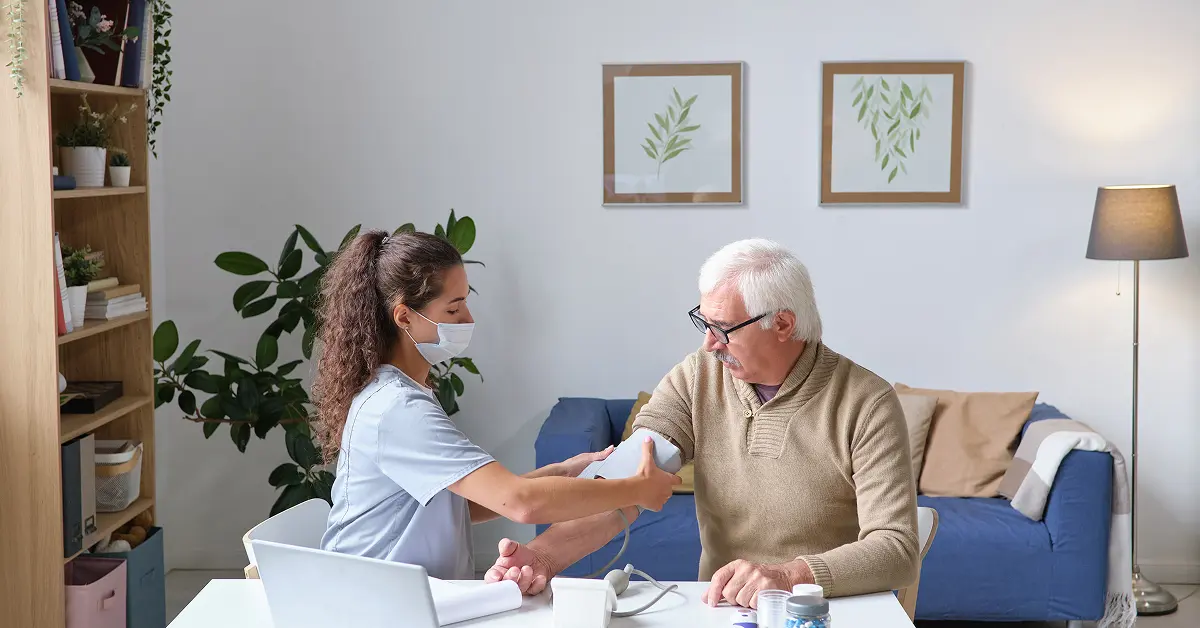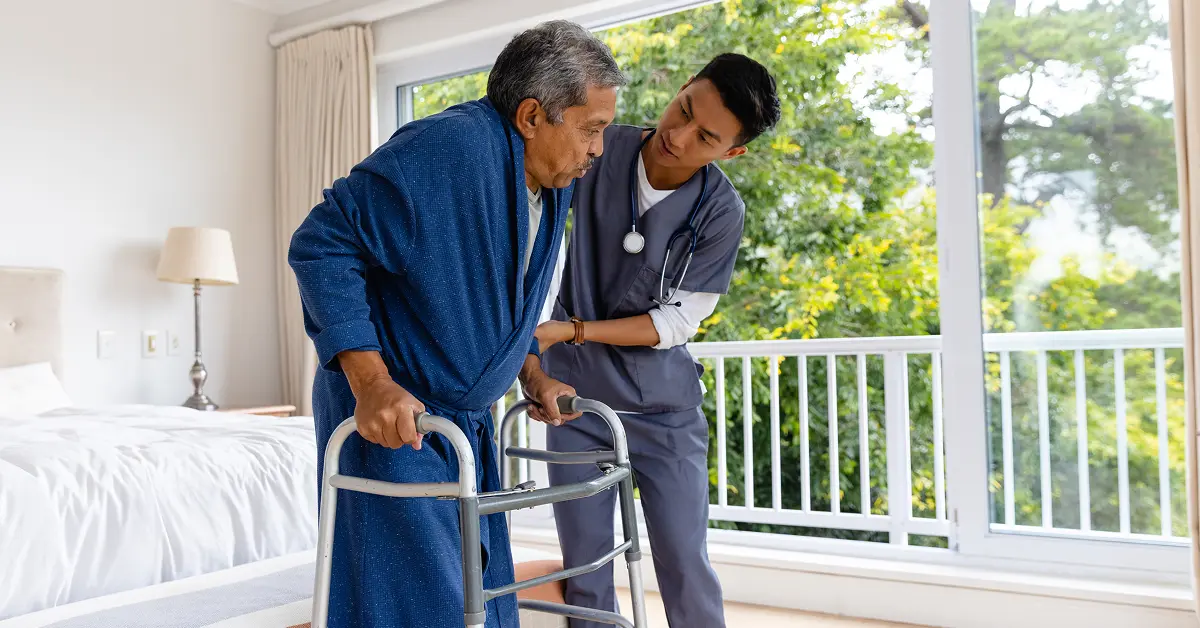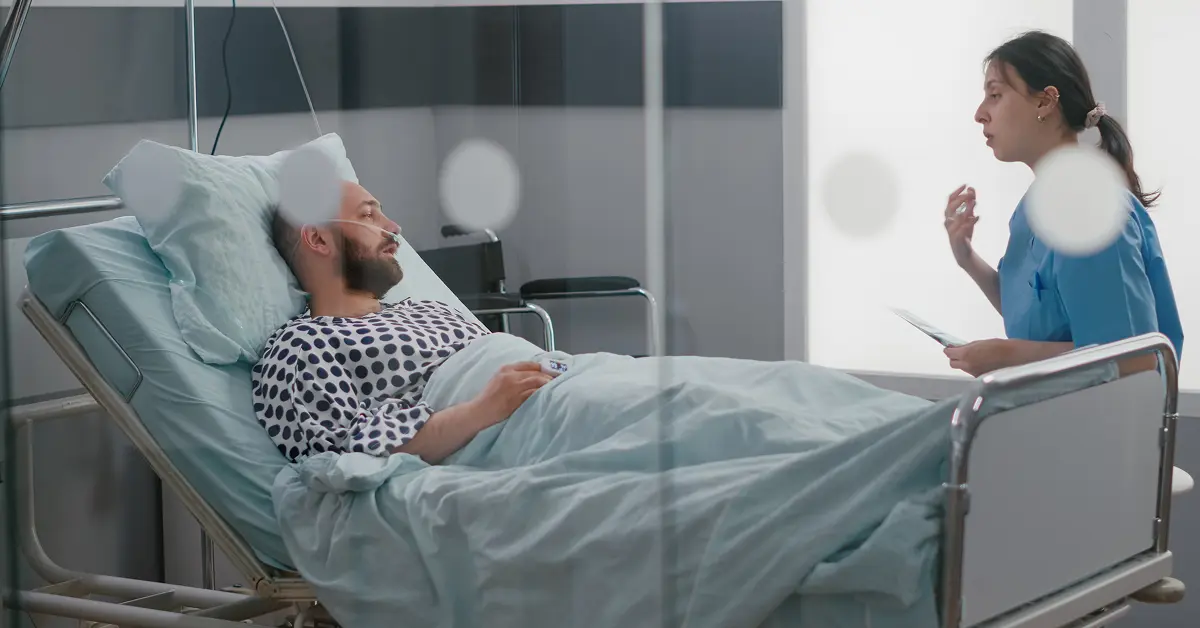Bringing a loved one home after a hospital stay is a moment of relief and joy. But this transition also comes with responsibilities. A well-thought-out home plan after hospital discharge is crucial to support the recovery journey and avoid setbacks or readmissions. In India, where families are closely knit and caregiving is often done at home, having a structured post-discharge care plan ensures emotional comfort and physical healing.
Here’s a detailed guide to help Indian families create an effective home care plan after Hospital Discharge
Understand the Discharge Summary Thoroughly

The discharge summary is the cornerstone of any post-hospitalisation plan. It contains:
- Diagnosis and treatment received
- Medications prescribed
- Follow-up dates and doctor contacts
- Dietary restrictions
- Activity limitations
- Warning signs to watch out for
Before leaving the hospital, speak to the doctor or nurse to clarify any doubts. If needed, request the information in Hindi or a regional language for better understanding.
Tip: Keep both physical and digital copies of the discharge papers accessible to all caregivers in the home.
Prepare the Home Environment
Your home must be physically ready to support the patient’s needs. Depending on their condition, you may need to:
- Rearrange furniture to allow for wheelchair or walker access
- Install grab bars in bathrooms
- Create a sleeping area on the ground floor to avoid stairs
- Ensure proper lighting and remove rugs or cords that can cause falls
For older adults or post-surgery patients, you may even consider renting a hospital bed, oxygen cylinder, or commode chair.
Local Tip: Many Indian cities have local vendors offering home care equipment on rent. Check with your hospital for recommended providers.
Assign Roles Among Family Members
In India, caregiving is often a family responsibility. Divide the tasks among family members to avoid burnout. Responsibilities may include:
- Medication reminders
- Cooking and diet management
- Personal hygiene assistance
- Escorting the patient to follow-up appointments
- Emotional support and companionship
For working professionals or nuclear families, hiring a trained caregiver or nurse at home can be immensely helpful.
Medication Management
Post-discharge, patients are usually prescribed multiple medications with specific dosages and timings. Here’s how to manage them efficiently:
- Create a daily medication chart
- Set alarms or use medication reminder apps
- Store medicines properly (especially insulin or antibiotics that need refrigeration)
- Refill prescriptions before they run out
Tip: Ask the doctor about possible side effects and what to do if a dose is missed.
Nutrition and Hydration Planning
Food plays a vital role in healing. A post-discharge diet should be aligned with the doctor’s advice. It should typically include:
- High-protein foods (dal, paneer, eggs)
- Fibre-rich fruits and vegetables
- Plenty of fluids
- Low oil, low salt meals (especially for heart or kidney patients)
For diabetes or hypertension patients, a dietician consultation may be helpful.
Arrange Follow-Up Appointments in Advance
Don’t wait till the last moment to book appointments. Line up follow-up visits with:
- The treating specialist (surgeon, physician, etc.)
- Physiotherapists if needed
- Diagnostic centres for blood tests or imaging
Make sure to maintain a medical diary with symptoms, daily readings (like blood pressure, sugar), and any side effects noticed. This helps doctors monitor recovery better.
Hire a Professional Caregiver if Needed
Not every family has the bandwidth or expertise to provide round-the-clock care. Hiring a professional home caregiver or home nurse ensures:
- Proper wound care or injections
- Monitoring vitals regularly
- Assisting with mobility or toileting
- Emotional comfort for the patient
In cities like Mumbai, Delhi, Bengaluru, and Hyderabad, many reputed services offer verified, trained caregivers on an hourly, daily, or monthly basis.
Emotional and Mental Health Support
Being discharged from the hospital doesn’t mean everything is back to normal. Patients may feel anxious, depressed, or fearful—especially if they’ve undergone surgery or trauma. Family members should:
- Encourage positive conversations
- Involve the patient in daily routines
- Avoid overprotectiveness
- Consider counselling support if needed
For elderly patients, loneliness or memory issues can worsen recovery. Spend quality time, introduce hobbies, or keep them socially connected.
Monitor Warning Signs
Keep a list of red flags or symptoms that need immediate attention. These could include:
- Sudden fever
- Chest pain or breathing difficulty
- Vomiting or diarrhoea
- Confusion or disorientation
- Bleeding from surgical sites
Always keep emergency numbers handy—doctor, ambulance, nearest hospital.
Build a Long-Term Recovery Plan
Recovery doesn’t stop in a week or two. Plan for long-term improvement by:
- Incorporating physiotherapy sessions
- Continuing diet restrictions
- Scheduling health check-ups
- Adjusting lifestyle habits like smoking, drinking, or sleep cycles
For chronic illness patients (diabetes, stroke, etc.), lifestyle changes and long-term care plans are essential for stability.
Final Thoughts
Creating a home plan after hospital discharge isn’t just about logistics—it’s about love, patience, and teamwork. Indian families can turn this challenging time into a period of healing and bonding by being organised, informed, and emotionally available.
Whether you’re caring for an ageing parent, a recovering spouse, or a child, this checklist will help you ensure they receive the best care at home. If the task feels overwhelming, don’t hesitate to seek professional home healthcare support.
Need Help With Post-Discharge Care?
Many families in India now rely on trained caregivers to handle post-hospitalisation recovery. Whether you need a part-time nurse or a full-time attendant, explore home care options that suit your needs and budget.
Contents
- Understand the Discharge Summary Thoroughly
- Prepare the Home Environment
- Assign Roles Among Family Members
- Medication Management
- Nutrition and Hydration Planning
- Arrange Follow-Up Appointments in Advance
- Hire a Professional Caregiver if Needed
- Emotional and Mental Health Support
- Monitor Warning Signs
- Build a Long-Term Recovery Plan
- Final Thoughts
Our 24*7 services
Latest Posts
- What Is Respite Care and Why Is It Important
- Affordable home care for senior citizens in India
- Caring for Seniors with Dementia or Alzheimer's at Home
- Senior Caregiving A Guide for Every Family
- How to Write a Caregiver Resume That Gets You Hired
- How Care After Hospital Discharge Speeds Up Recovery at Home
- How to Get Home Health Care for Seniors Through Medicare
- What Does a Senior Citizen Caregiver Really Do at Home
- How to Care for Elderly Parents with Alzheimer’s or Dementia
- How to Get 24-Hour Care for Seniors at Home



